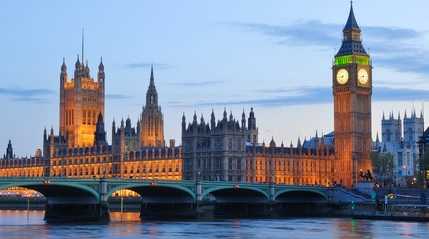
LONDON, Sept. 14 (Xinhua) -- The United Kingdom (UK)'s consumer price index (CPI) rose by 9.9 percent in the 12 months to August 2022, a slight easing of the inflation rate and the first decline in nearly a year, official statistics showed Wednesday.
The inflation rate fell from the 40-year high of 10.1 percent in July, the first drop since September last year, the Office for National Statistics (ONS) said.
HOVERING INFLATION
A fall in the price of motor fuels made the largest downward contribution to the inflation slowdown between July and August, while rising food prices made the largest -- partially offsetting -- upward contribution, according to the ONS.
Between July and August, the annual inflation rate for motor fuels eased from 43.7 percent to 32.1 percent -- mainly due to a 14.3 pence (0.16 U.S. dollars) per liter drop in petrol prices, said the ONS.
In comparison, food and non-alcoholic beverage prices rose by 13.1 percent in the 12 months to August, up from 12.7 percent in July.
The UK's inflation rate, however, was still the highest among the Group of Seven (G7) in August.
"Inflation eased very slightly this month, but at 9.9 percent, it remains a significant concern for households who continue to face a cost of living squeeze," said Helen Dickinson, chief executive of the British Retail Consortium.
FURTHER RISE EXPECTED
The country's central bank, the Bank of England (BoE), had expected inflation to reach 13 percent later this year. The outlook has turned better recently as the government outlined a plan earlier this month to support households and businesses with their energy bills.
Under the plan, a typical household will pay no more than 2,500 British pounds annually on their energy bill over the next two years from October. The government believes this would boost growth and curb inflation.
Nevertheless, despite the latest decline, analysts say UK's inflation has yet to peak.
"We are concerned by the further rise in services inflation," said Paul Dales, chief UK economist at consultancy Capital Economics. He said the inflation rise would largely be driven by the tight labor market and strong wage growth, which have shown little sign of abating.
CPI inflation will rise to 11 percent later this year and the tight labor market will keep underlying inflationary pressures strong until early next year, Dales added.
As the falling inflation rate in August is largely due to changes in the prices of petrol and diesel, it is therefore driven predominantly by the international oil price rather than domestic factors, said Kitty Ussher, chief economist at the Institute of Directors.
This means the drop in inflation rate is unlikely to alter expectations of a rise in interest rates when the BoE meets next week, Ussher added.




